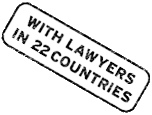ELDH statement – European Lawyers declare (download PDF-File)
From 10 to 14 September 2018 the first hearings took place in the new trial of 20 Turkish lawyers before the 37th Heavy Penalty Court in Istanbul. At the end of the fifth day of the trial, the court decided to release all 17 lawyers from pre-trial detention. Under the present political situation in Turkey this was a courageous decision by the court, although completely justified.
The release took place early on Saturday morning. However, 24 hours later, on the request of the prosecutor, the court decided without any new reasons to arrest 12 of the lawyers again, among them the ÇHD President Selçuk KOZAGAÇLI. He did not make any attempt to escape but presented himself at the court, where he was rearrested.
All accused lawyers are members of the Progressive Lawyers Association in Turkey, ÇHD (Çağdaş Hukukçular Derneği, http://cagdashukukcular.org/ . The majority of them are also members of People’s Law Office HHB (Halkin Hukuk Bürosu). The detained lawyers have been dispersed to different prisons all over Turkey, without any reason given. Selçuk KOZAGAÇLI, the President of ÇHD, a member of the ELDH Executive Committee and a member of the HHB has been detained the whole time, more than a year, in solitary confinement in the Silivri Prison. His colleague Yaprak TÜRKMEN was also detained for a year in solitary confinement until she was released on 15 September, and so is Ahmet Mandacı after his re-arrest.
Solitary confinement is unacceptable for such a long time because it causes severe psychological and physical harm, and because it is disproportionate in relation to the weak evidence presented by the prosecutor.
All 20 lawyers are accused of membership in a terrorist organisation, DHKP-C. This is the second trial of lawyers of the ELDH member organisation ÇHD. 8 of the defendants have been accused in both ÇHD trials of more of less the same offences. Although the judge explained at the first day of the hearing, that these 8 defendants are only accused in relation to offences which occurred after the first indictment there is grave concern that this is a violation of the principle “ne bis in idem”, not to be tried twice for the same crime, which is prohibited by Article 4 of Protocol No.7 to the European Convention on Human Rights:
Article 4 – Right not to be tried or punished twice
- No one shall be liable to be tried or punished again in criminal proceedings under the jurisdiction of the same State for an offence for which he has already been finally acquitted or convicted in accordance with the law and penal procedure of that State.
- The provisions of the preceding paragraph shall not prevent the reopening of the case in accordance with the law and penal procedure of the State concerned, if there is evidence of new or newly discovered facts, or if there has been a fundamental defect in the previous proceedings, which could affect the outcome of the case.
- No derogation from this article shall be made under Article 15 of the Convention.
Since these defendants are charged with alleged membership in a terrorist organisation, and not for any violent acts, there cannot be any new charges because membership is a continuing status and cannot be split up into two separate offences.
The evidence introduced by the prosecutor seems to be very weak. It is based on testimonies of secret witnesses and open witnesses. The open witness, or “confessor”, is a witness, whose sentence has been reduced substantially in return for his testimony against the accused lawyers. The prosecution case is also based on electronic documents or copies of electronic documents of which the originals are not produced, and the origin is not known. These have not been protected against falsification. The prosecutor has also introduced circumstantial evidence. The fact that the accused lawyers and the HHB mainly represent alleged DHKP-C members as clients, is taken as evidence that the HHB and all its lawyers are part of the structure of DHKP-C. Although the prosecutor concedes that the accused and the HHB have also non-DHKP-C clients, the prosecutor takes this as an attempt to hide the connection with the HHB law office. The prosecutor said that the defendants represented the families of the Soma Mine victims for effect.
The charges brought by the prosecutor are an obvious interference of the state in the right of accused persons to choose their own lawyer, and of lawyers to choose their clients. This is especially the case when the client has been charged with the most serious terrorist offences.
It is also unacceptable to take as circumstantial evidence the fact that a lawyer has informed a client that s/he has the right to refuse to give evidence. It is the duty of a lawyer to inform clients of their rights. The accused President of ÇHD was completely right when he declared during the hearing that it is not the task of defence lawyer to spy on his clients or to denounce them.
The prosecutor and the court should keep in mind, that the state of emergency is over. With the banning of ÇHD by decree the constitutional rights of those affected, as well as European and international law were violated, because a derogation from human rights is only permitted to the extent strictly required by the exigencies of the situation and only for the necessary time to overcome the emergency. In the view of ELDH, the present indictment is still politically inspired by the state of emergency, although it has been lifted a few weeks ago.
All the present charges have all the hallmarks of attempted intimidation of lawyers .
ELDH demands
- the immediate release of the detained lawyers from pre-trial detention; even the Turkish Foreign Minister has admitted that pre-trial detention is used excessively in Turkey and already in Mid-December the Minister of Justice will present a reform package
- the immediate termination of solitary confinement
- the closure of the legal proceedings against the 20 lawyers
- respect for the UN “Basic Principles on the Role of Lawyers”, in particular Art. 16 “to ensure that lawyers are able to perform all of their professional functions without intimidation, hindrance, harassment or improper interference” and Art. 18 “Lawyers shall not be identified with their clients or their clients’ causes as a result of discharging their functions”
- respect for Art. 6 ECHR and Art.14 International Covenant on Civil and Political Rights (right to a fair trial)
- compensation for all lawyers for the economic, psychologic and social damage they have suffered due to their prosecution.

